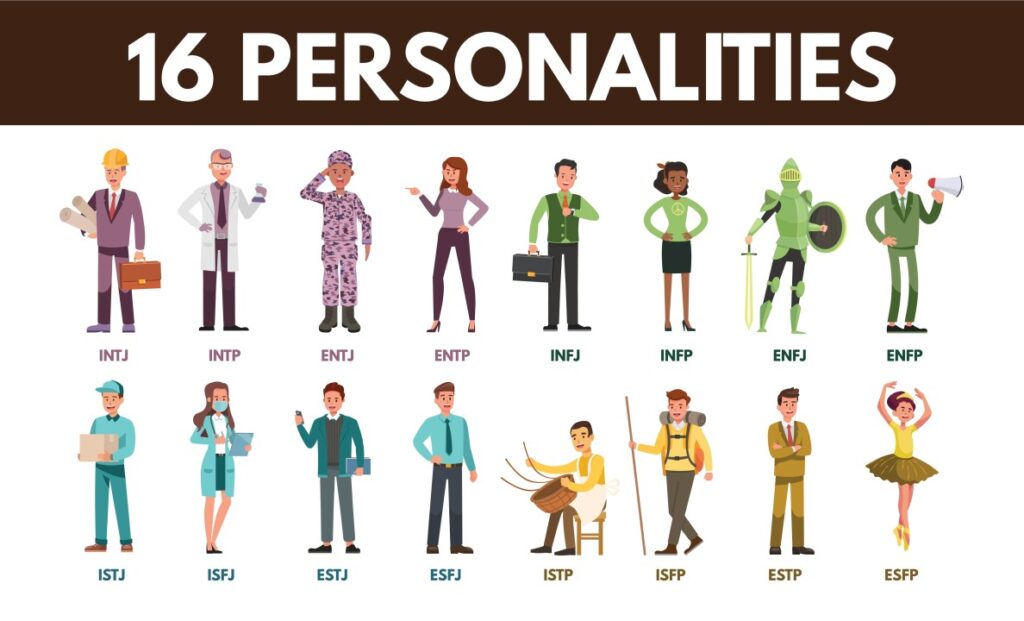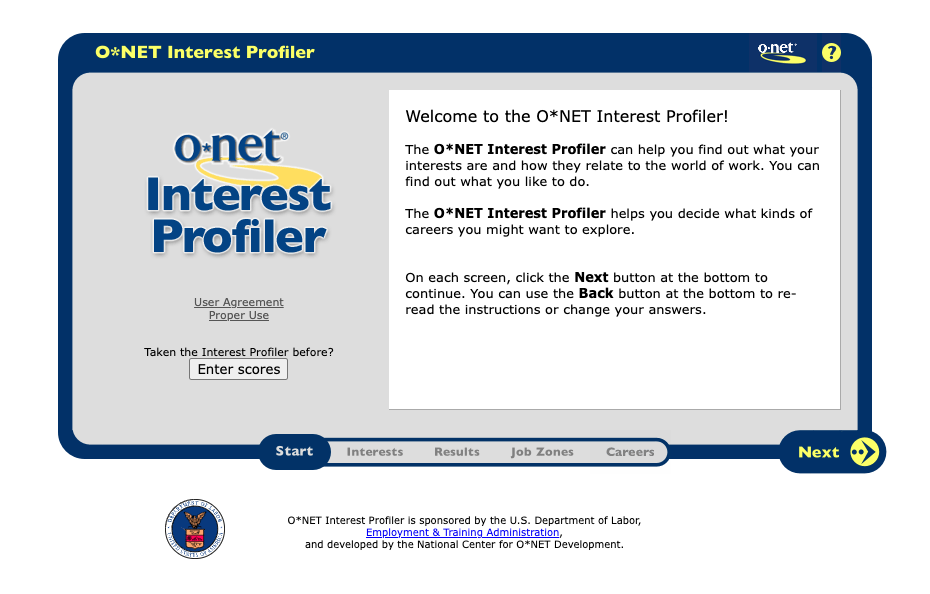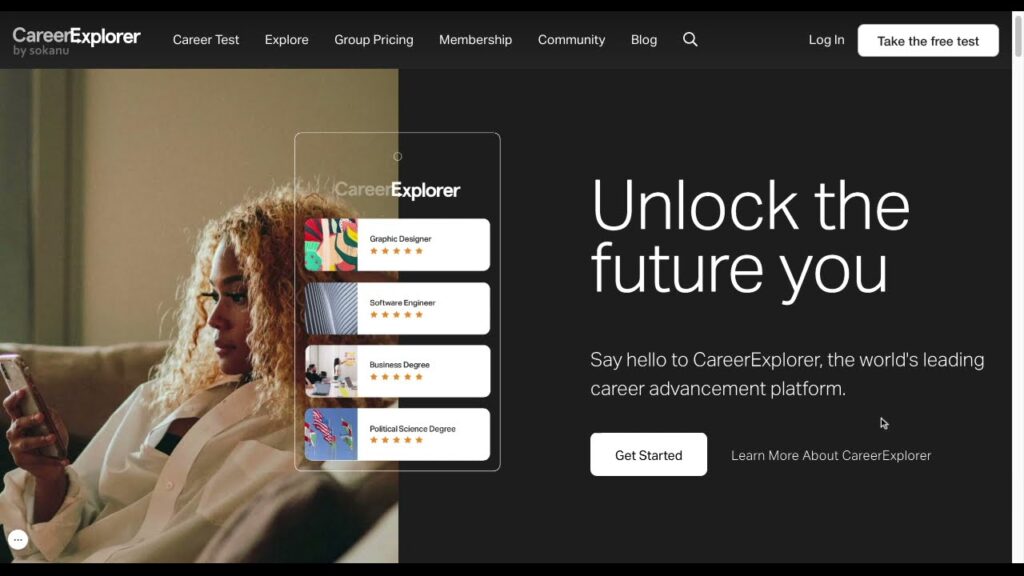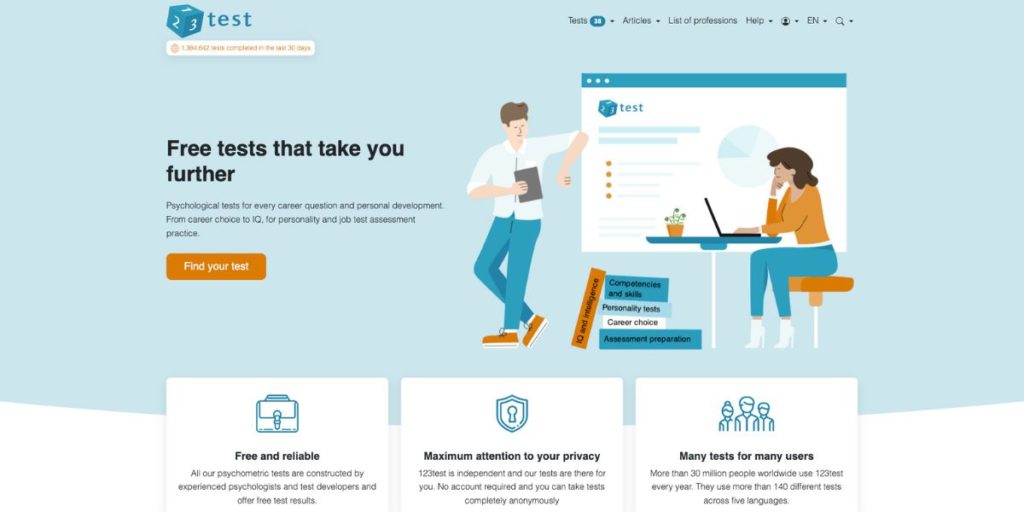Career exploration is a vital step for individuals at any stage of their professional journey, and career assessments play an integral role in this process. With the abundance of free career tests available online, individuals can gain insights into their strengths, personality types, and suitable career paths without financial barriers. This article provides an overview of some popular free career tests, evaluating their features, benefits, and limitations.
1. 16Personalities
One of the most widely known free career tests, the 16Personalities test is based on the Myers-Briggs Type Indicator (MBTI) framework. This test assesses individuals across four personality dimensions: Introversion vs. Extraversion, Intuition vs. Sensing, Thinking vs. Feeling, and Judging vs. Perceiving. Upon completion, participants receive a detailed report on their personality type, along with career suggestions that align with their strengths and preferences.

Pros:
- The test provides a comprehensive personality profile.
- It suggests career paths based on personality type, making it easier for users to relate their natural tendencies to specific fields.
- The results are easy to interpret and provide actionable advice.
Cons:
- Although the test is free, detailed career insights and premium features require a paid upgrade.
- MBTI has been criticized for a lack of scientific backing, with some experts arguing that personality types are too fluid to be categorized rigidly.
2. O*NET Interest Profiler
Offered by the U.S. Department of Labor, the O*NET Interest Profiler is an evidence-based career assessment tool designed to help individuals identify their career interests. It categorizes these interests into six areas: Realistic, Investigative, Artistic, Social, Enterprising, and Conventional (RIASEC). After taking the test, users are provided with a list of careers that match their interest areas.

Pros:
- The O*NET Interest Profiler is research-based and widely trusted by career professionals.
- It directly links users to specific jobs within their interest areas, with additional information on job outlooks and educational requirements.
- The test is comprehensive and easy to access, with results provided free of charge.
Cons:
- The test focuses primarily on interests and may not account for other important factors, such as skills or personality traits.
- It may overwhelm users with too many job suggestions, making it harder to narrow down career options.
3. CareerExplorer
CareerExplorer by Sokanu is a modern, data-driven career test that analyzes a user’s personality, interests, values, and work preferences. The test takes around 30 minutes to complete, providing users with a “fit score” that ranks over 800 potential careers based on their individual profile. The test is interactive, with questions that cover a wide range of career-relevant factors.

Pros:
- The test provides personalized career matches based on multiple factors, including personality, interests, and skills.
- CareerExplorer offers extensive information on different careers, including salary ranges, required skills, and educational paths.
- It includes resources for career development, such as job descriptions and work environment overviews.
Cons:
- While the basic test is free, accessing in-depth career data and features requires a subscription.
- The test is relatively long compared to other career assessments, which might deter some users.
4. 123 Career Test
The 123 Career Test is a simple, visually-driven assessment that categorizes individuals according to Holland’s RIASEC model. The test takes only five minutes to complete and provides instant career suggestions based on the user’s dominant interest areas.

Pros:
- The test is quick and easy, perfect for those who want fast results.
- It aligns with a well-established career theory (Holland’s RIASEC), ensuring that users receive valid career suggestions.
- The interface is user-friendly and does not require any personal information to access the results.
Cons:
- The results are less detailed compared to other career tests, offering only a broad overview of potential career matches.
- The simplicity of the test might not be suitable for individuals seeking a deeper analysis of their career options.
Conclusion
Free career tests are a valuable starting point for individuals seeking clarity in their career paths. Each test has its strengths and limitations, and users may benefit from taking multiple tests to gain a well-rounded perspective. Whether you’re looking for a quick assessment like the 123 Career Test or a more comprehensive analysis through CareerExplorer, these free tools can help guide career decisions without any financial burden. However, it’s important to remember that career tests should be complemented with self-reflection and, when possible, professional career counseling for the best outcomes.
Leave a Reply